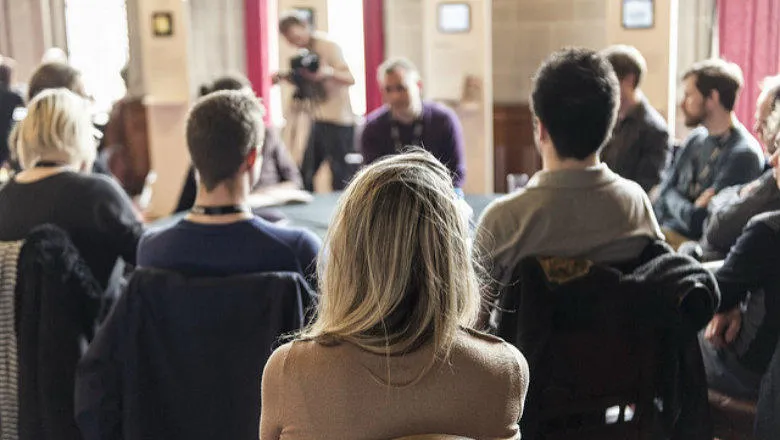31 January 2018
Diaspora Dilemmas: Political Participation in Contested Environments
Call for Papers: this workshop is organised with the assistance of the Leverhulme Foundation Research Grant, to take place at King’s College London, on April 13, 2018.

This workshop is organised with the assistance of the Leverhulme Foundation Research Grant, to take place at King’s College London, on April 13, 2018, with the convenors: Dr Gillian Kennedy, Leverhulme Research Fellow at the Department of Middle Eastern Studies, King’s College London, and Dr Branislav Radeljic, Reader in International Relations at the Department of Social Sciences and Social Work, University of East London.
Diasporas are one of the most prominent manifestations of increased globalization, with migration flows from conflict ridden countries forming much of the basis of new migrant communities in the West. With this, the impact of diasporas as political actors participating in host countries is changing the nature of immigrant politicisation, alongside transnational political engagement with home countries also seen increasingly as a feature of post-conflict political contestation. Diaspora communities through the use of social media are more deeply connected to their home countries than previous generations, seeking both to challenge existing state structures in their home nations via political protest in their host country. Understanding the changing methods and ideas affecting collective diaspora participation is imperative to the scholarly field of international relations as the lines between the nation-state and transnational identity have become blurred in recent decades, therefore this topic is of significant public policy concern for both scholars and non-academic practitioners.
The aim of this workshop has multiple scholarly objectives: firstly, to examine the comparative dimension of diaspora political participation across a range of post-conflict scenarios from Asia to the Balkans and the Middle East, with a focus on examining voting patterns and electoral participation; secondly, to analyse diasporas’ effectiveness as a political actor on the supranational stage; and finally, to seek answers for the political integration of diaspora communities on host state politics and consequential interstate relations.
Some of the questions this workshop would like to address are:
- Why do some diaspora communities unify in the face of conflict while others fragment?
- Why do diaspora communities engage with supranational institutions such as the International Criminal Court and the European Court of Justice, instead of seeking redress from national sovereigns?
- How do diaspora groups participate in politics in their home states’ transnationally and what are their objectives?
- Can diasporas affect foreign policy prescriptions in host countries towards home states and how does this affect inter-state relations?
We are looking for papers from various regions and are open to scholars from different disciplinary backgrounds alongside non-academic practitioners from diverse professional backgrounds. The workshop is open to postgraduate research students working in a relevant research capacity. The workshop will take place over 1 day with participants expected to discuss their papers in detail with other participants. Please submit a paper abstract of 250 words and a short biography to gillian.kennedy@kcl.ac.uk and B.Radeljic@uel.ac.uk by March 15, 2018.
